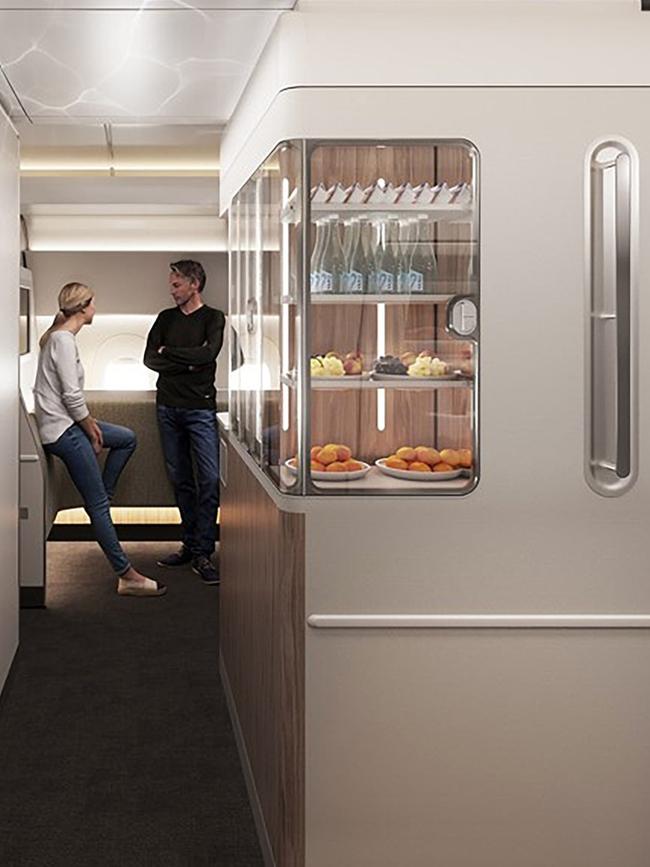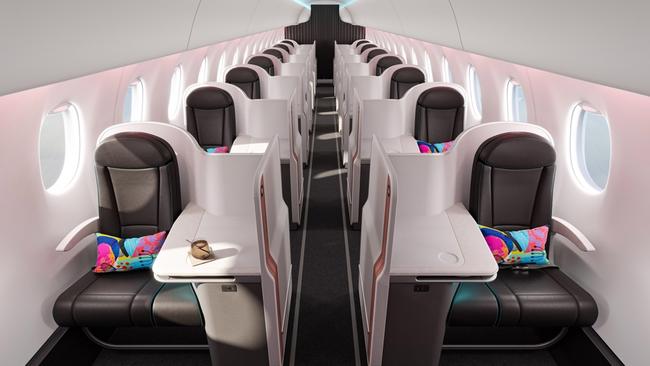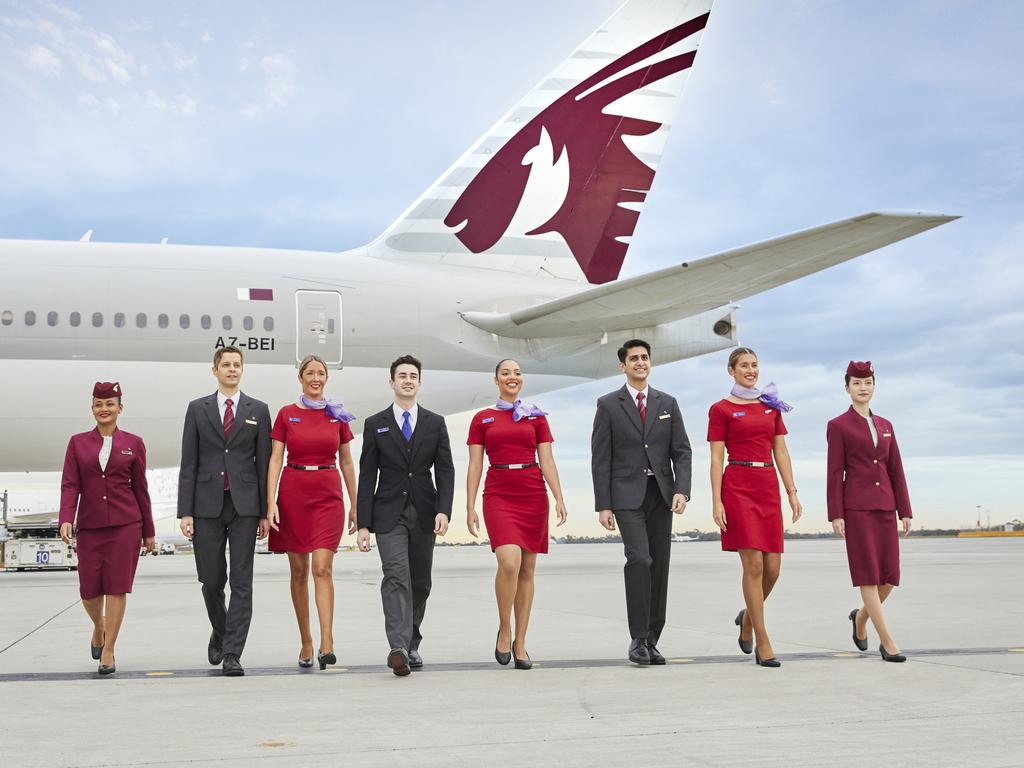Qantas lands award for new cabin feature yet to be seen on-board
The airline has bagged an award for a wellbeing zone in its new A350s that are not set to fly until 2026 on the non-stop Sydney to London and New York routes.
Qantas has scored a prestigious international award for an on-board feature that is yet to take to the skies.
The Crystal Cabin Awards are considered the top accolade in the fields of cabin technology and passenger experience, and are judged by a jury of 28 industry experts.
In the “passenger comfort” category, Qantas and designer Diehl Aviation were named the winners for an innovative wellbeing zone, planned for new A350-1000s operating ultra-long-range Project Sunrise routes.
Customers however are not expected to get a look at the specially configured Qantas A350 until mid-2026 when Project Sunrise flights are due to take off.
With flights of up to 22 hours duration on routes such as Sydney-London and Sydney-New York, Qantas and Diehl came up with the idea of an area where passengers could stretch, rehydrate and access snacks.
The Crystal Cabin jury praised the concept for “its refreshing approach to ultra-long-haul comfort”, noting the wellbeing zone’s support for healthy eating and exercise.
“The innovative wellbeing zone offers science-based wellness products, biorhythm-optimised lighting and real glass doors,” said the jury.
“This area is accessible to all passengers, supports healthy eating and offers space for physical activity.”

Qantas executive manager of product and service, Phil Capps said the zone located between the premium economy and economy cabins, was intended to help passengers feel their best on arrival.
“The distance between Australia and the rest of the world has given us the opportunity to think differently about our cabins and create spaces such as the wellbeing zone,” said Mr Capps.
“State of mind and physical wellbeing are equally important for ultra long-haul flying. By creating a separate zone for movement and socialisation in our A350 cabin, we can help customers to feel their best when they arrive at their destination.”
Fitted with an extra fuel tank in order to cover the distance from Australia’s east coast to virtually any other city in the world, the A350s will carry 238 passengers including 140 in economy.
Jorg Schuler of Diehl Aviation said the firm collaborated closely with Qantas to bring the vision of “compact and lightweight cabin components to life”.
Mr Schuler said new materials and manufacturing techniques were developed, including real glass doors with only 2mm thickness, and state of the art vacuum panels.
“Insulation thickness was reduced by a factor of three to four, gaining 5cm in width and depth,” he said.
“This reclaimed valuable floor space for passengers.”

Other winners in the Crystal Cabin awards included a business class passenger seat for single-aisle aircraft operated by BermudAir.
Created by converting 2-2 economy seats into a 1-1 suite, the solution was heralded as “extremely cost-efficient and sustainable” by using existing seats to provide more comfort and additional storage space.







To join the conversation, please log in. Don't have an account? Register
Join the conversation, you are commenting as Logout